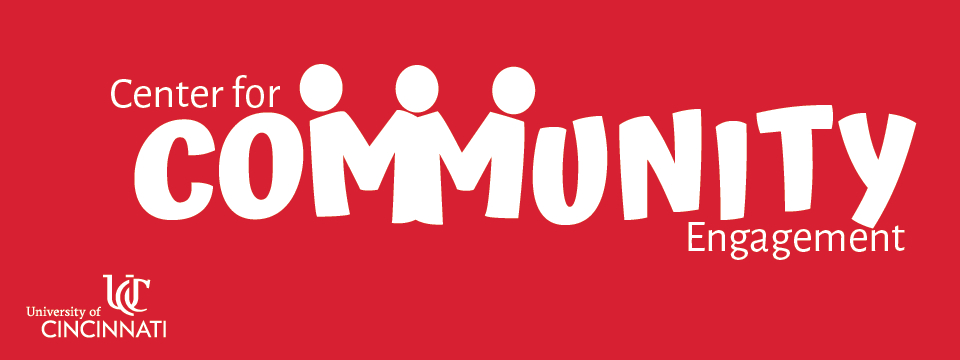

About our Organization
Mission statement Our mission is to function as a resource center for immigrants and refugees. We are committed to advocating, educating, and facilitating connections to help immigrant and refugee families achieve and maintain self-sufficiency and successfully integrate and participate in their new communities. Our commitment is also directed towards raising public awareness about immigrants and refugees to increase their visibility and change public attitudes for better connections between the two disparate communities. Therefore, we endeavor to address the incapacity of immigrants and refugees to communicate in English, the cultural shock, low education or unmatched education, culturally inappropriate social and life skills, limited or nontransferable job skills; the inadequate living conditions and other social issues like poor living environments in high crime neighborhoods that complicate their integration. Organization History Cross Over Community Development (COCD), a 501(c)(3) non-profit founded on April 8, 2016 in Dayton, Ohio, symbolizes a profound commitment to transforming the lives of immigrants and refugees. Created with the aim of converting post-resettlement challenges into opportunities for integration into the Greater Dayton area, COCD has become a beacon of hope and empowerment. In the Greater Dayton area, also known as Miami Valley, a rich tapestry of immigrant and refugee stories is marred by multifaceted challenges. Linguistic barriers, cultural misconceptions, economic hurdles, family dynamics, social isolation, housing difficulties, and healthcare needs are just the tip of the iceberg. For many, the journey of resettlement is fraught with uncertainty. However, the visionaries behind COCD turned these challenges into calls to action, seeking solutions that transform these hardships into opportunities. COCD identified shortcomings in existing English Language Learning (ELL) programs from the onset. While traditionally focused on literacy, these programs often neglected the nuances and demands of oral cultures, leaving many immigrants ill-equipped for everyday interactions and professional settings. To address this gap, COCD has worked to refine ELL frameworks, creating a balanced focus on oral communication skills and literacy, incorporating bilingual teachers to bridge cultural divides, and providing tailored language instruction to individuals with diverse proficiency levels. Furthermore, COCD has actively sought to challenge public perceptions that hinder immigrants' economic integration. Misunderstandings about immigrants stealing jobs or burdening the economy have been persistent problems exacerbated by a lack of strategic integration. Many immigrants bring valuable skills and education but are underemployed due to barriers like credential recognition and discrimination. COCD has responded by focusing on reversing this trend of underemployment, bridging language gaps, and connecting skilled immigrants to certifying training, thereby aligning their qualifications with local demands. In this perspective, we have started GED classes and College Readiness preparations for that chunk of the immigrants. Housing and living conditions are areas where many immigrants and refugees grapple with difficulties. Low income, poor housing, and cultural shifts in child-rearing practices jeopardize family stability. COCD has addressed these concerns through integrative solutions focusing on economic, housing, and social integration, rooted in tangible goals and measurable outcomes. The unique health, emotional, and cultural needs of immigrants and refugees have also been a priority for COCD. The scars of past traumas often accompany refugees, and their medical and psychological needs may be overlooked. COCD ensures that individuals are truly integrated, understood, and supported by catering to these diverse needs. In this perspective, we have launched the family mentoring program at a small extent while we are expecting donors to understand the needs for such an endeavor and to support the program that is critical to refugee integration. Education forms another pivotal aspect of COCD's mission. Besides the GED preparatory and college readiness classes for access to higher education in US, COCD has also embarked on vocational opportunities for unskilled immigrants to warrant their seamless integration into the workforce. Additional support in legal navigation and healthcare access ensures that every immigrant and refugee has the tools and knowledge to navigate their new home's complex systems. In the heart of Dayton, COCD stands as an epitome of empathy, understanding, and proactive intervention. COCD isn't just an organization; it's a movement that transforms resettlement challenges into opportunities, ensuring that every immigrant and refugee feels understood, supported, and empowered to thrive in their new community. Through its tailored solutions, compassionate approaches, and unwavering commitment, COCD exemplifies what it truly means to be a community. In the early stages of COCD's inception, we quickly recognized the value of collaboration. Relying solely on volunteers would have been a limited approach to achieving our goals. To expand our capabilities, we forged strategic alliances with local academic institutions, community groups, and individual stakeholders. This enhanced COCD's program quality. Furthermore, we guide graduates from our ESL and GED programs toward certification courses, boosting their skills and job prospects. Throughout our journey, COCD has consistently aimed to be the region's most connected organization, ensuring that essential needs are addressed.
How our organization engages UC students
Remote Collaboration Areas with University of Cincinnati Educational and Research Opportunities Virtual Research Partnerships: Students conduct remote studies on immigrant integration and public health. Online Cultural Exchanges: Leverage video conferencing for cultural understanding. Remote Language Tutoring: Students tutor in English and other languages via video calls. Community and Social Engagement Translation and Interpretation: Multilingual students assist with language services. Remote Volunteering: Tasks like digital marketing, community outreach, and data entry can be done remotely. Professional and Career Development Remote Internships: Opportunities in social media management, grant writing, data analysis, etc. Business Plan Development: MBA students collaborate on COCD's business plan. Virtual Legal Clinics: Law students offer remote consultations. Strategic and Administrative Support Administrative Support: Virtual assistance in scheduling, digital file organization, and communications. Project Planning and Management: Students assist in remotely managing COCD initiatives. Strategic Planning: Help in drafting and refining the organization's strategic goals and KPIs. Healthcare and Well-being Telehealth Services: Medical students offer remote health screenings. Conversational English Practice: Virtual meet-ups to practice English in a relaxed environment.
Details
| (937) 559-7195 | |
| catherine@crossovercd.org | |
| CATHERINE BITWAYIKI | |
| Executive Director | |
| https://crossovercd.org/ |


